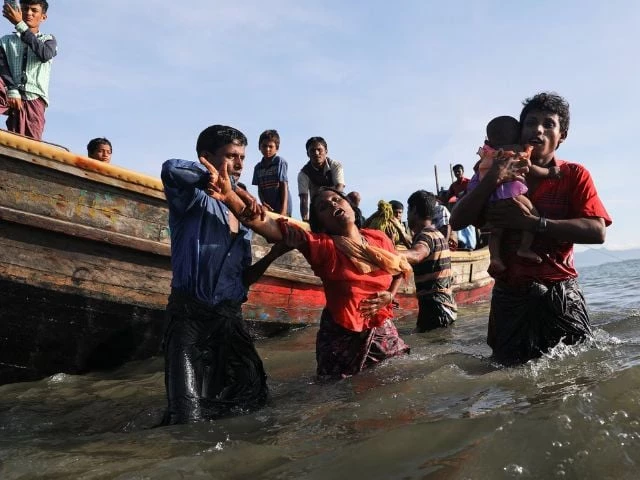India draws flak over reported sea expulsion of Rohingya refugees
Survivors reportedly swam ashore with only life jackets after being pushed into the sea.

Indian authorities are facing international condemnation after reports emerged that at least 40 Rohingya refugees were forcibly expelled into the Andaman Sea near Myanmar. The United Nations has condemned the actions, calling for an immediate investigation.
The United Nations High Commissioner for Human Rights (OHCHR) stated that the refugees, including women, children, and elderly individuals, were detained in New Delhi on May 6 and subsequently cast into the sea by the Indian navy on May 8 after being provided with life jackets.
According to testimonies from survivors, the refugees swam ashore but their current whereabouts in Myanmar remain unknown.
One refugee reported that his family members were among those deported and managed to contact him after reaching an island in Myanmar.
He described being told by his brother that Indian authorities removed their restraints, gave them life jackets, and instructed them to swim to an island in Myanmar territory.
The OHCHR condemned the actions as a serious violation of the principle of non-refoulement, which prohibits returning individuals to a country where they may face harm.
Tom Andrews, the UN Special Rapporteur on the situation of human rights in Myanmar, called the incident "blatant disregard for the lives and safety of those who require international protection" and "nothing short of ... ."
In response, lawyer Dilawar Hussain filed a petition in India's Supreme Court seeking the return of the deported refugees. However, the court expressed frustration over repeated petitions on the same issue without presenting new facts.
On May 8, the Supreme Court ruled that only Indian citizens have the right to reside in the country, rejecting pleas to halt the deportation of Rohingya Muslim migrants.
India's navy and foreign ministry have declined to comment on the allegations. The incident has drawn comparisons to previous reports of mistreatment of refugees and has raised concerns about India's treatment of displaced individuals.
The UN has called for an investigation into the incident and urged the Indian government to refrain ... ."
The situation highlights the challenges faced by Rohingya refugees in India, many of whom live in precarious conditions without legal recognition or protection.
India is not a signatory to the 1951 Refuge ... and does not have a national policy to deal with refugees, leaving many displaced individuals vulnerable to deportation and mistreatment.
The Rohingya, an ethno-religious Muslim minority from Myanmar's Rakhine State, represent the world's largest stateless community, with over 3.5 million people dispersed across borders yet recognised as citizens by almost no nation.
Myanmar's 1982 citizenship law effectively rendered them stateless by excluding them from the country's 135 recognised ethnic groups.






















COMMENTS
Comments are moderated and generally will be posted if they are on-topic and not abusive.
For more information, please see our Comments FAQ